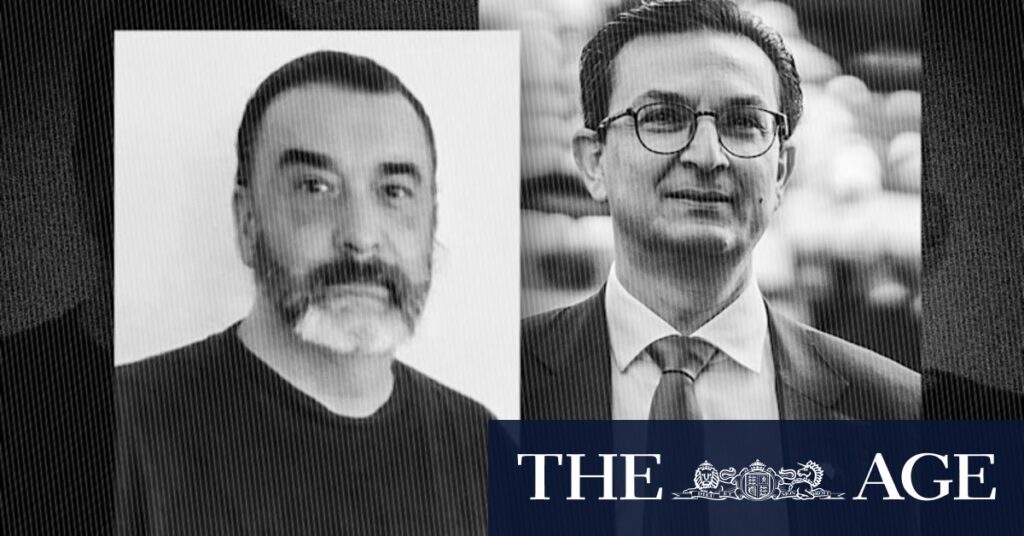
Fred Hernandez, an above-the-knee amputee, spent 16 months in a Nevada prison after a series of lawsuits initiated by the once-celebrated surgeon Munjed Al Muderis. The legal actions stemmed from Hernandez’s social media posts accusing Al Muderis of unethical practices in osseointegration surgeries. What began as a digital protest led to Hernandez serving time for contempt of court, sharing space with hardened criminals.
The ordeal left Hernandez without his livelihood, enduring severe nerve pain without adequate medical treatment. “The medical [treatment] in there was severely lacking on just about every level,” Hernandez recounted. He spent much of his incarceration in a wheelchair, which significantly regressed his mobility progress. “I started with a walker, and that went to two crutches, one crutch and I’m still on a cane,” he added.
The Rise and Fall of a Medical Partnership
The legal battle traces back to 2018 when Hernandez’s social media posts warned of Al Muderis’ alleged misconduct. Hernandez, who had once been a business partner and patient of Al Muderis, accused the surgeon of a “major cover-up” in his treatment of patients. His claims were later supported by a Federal Court of Australia judgment that criticized Al Muderis for negligent patient care.
Despite the court’s validation, Hernandez had already suffered significant personal and financial losses. “Over the years I became aware of situations that I frankly did not agree with; unethical on some levels and downright wrong on others,” he wrote in December 2018. The fallout from these revelations included a barrage of litigation that left him financially destitute and unable to work in the osseointegration field.
Osseointegration: A Double-Edged Sword
Osseointegration, a procedure involving the insertion of a titanium rod into an amputee’s residual bone, offers significant benefits over traditional prosthetics. However, it also carries risks such as infections and potential further amputations. Hernandez, who became an amputee at 17, was initially captivated by the procedure’s promise of improved mobility.
In 2012, Hernandez approached Al Muderis, intrigued by his passion for osseointegration. Their partnership flourished, with Hernandez promoting the surgery in the U.S. and receiving commissions for patient referrals. However, the relationship soured when Al Muderis ceased these payments in 2018, prompting Hernandez to publicly criticize the surgeon’s practices.
Legal and Ethical Implications
The Federal Court’s ruling highlighted the ethical concerns surrounding Hernandez’s promotional activities, which were influenced by financial incentives. Justice Wendy Abraham described the arrangement as unethical, noting that it compromised the impartiality of Hernandez’s advice to prospective patients.
Al Muderis’ legal actions against Hernandez were perceived as attempts to maintain a monopoly on the lucrative surgery in the U.S. “If you work for him, he owns you,” Hernandez stated, criticizing the surgeon’s control over his associates.
The Aftermath and Future Outlook
Hernandez’s release from prison in April marked the end of a tumultuous chapter. Despite the hardships, he remains resolute, believing that patients deserved to know the truth. “I literally lost everything,” he said. “Patients had a right to know. Given my role in building this fake persona that is Al Muderis, I feel like I had a responsibility.”
Al Muderis’ defamation case against media outlets, including this masthead and 60 Minutes, failed, further validating Hernandez’s claims. However, the financial and emotional toll on Hernandez is undeniable. He continues to rebuild his life, advocating for transparency and ethical practices in medical treatments.
The case underscores the complexities of medical ethics, patient advocacy, and the power dynamics within the healthcare industry. As Hernandez looks to the future, his story serves as a cautionary tale about the potential consequences of challenging established figures in the medical field.







